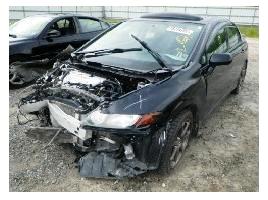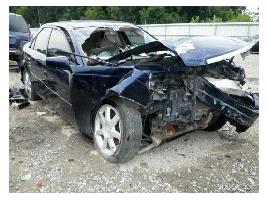Ask an Attorney a Question for FREE!
The Recorded Statement
If you decide to give the statement or already gave one, these pages could still help!
Should you give a recorded statement? There is lot of debate about this question.

Insurance companies will push very hard to get this statement from you (they will tell you that they will not even pay a claim unless you give them one).
Many attorneys’ policies are to not allow any of their clients to give a recorded statement. Others do not really care. I believe you should not give one at all. If you do, then you at least should be represented by an attorney and she/he must be present.
The problem is that insurance companies will drag their feet and will leverage against you so you give them this statement. My best advice to you is this - never give a recorded statement to the other party’s insurance company.
This information will only be used against you. They will ask for it several times. They will tell you that the investigation cannot go forward unless they have your statement. This is NOT true.
They can have their own client’s recorded statement, get the police report, and get your verbal statement (same statement just not recorded). This information is already sufficient for them to make a liability (fault) decision.
If the other insurance company is very pushy about getting you on tape, and they do not want to take a verbal statement, tell them that it is your right to decline a recorded statement. Also tell them you will allow for your own insurance company to provide a transcription of the tape to them.

This way it will be your insurance company taking the statement and not the opposing party. Be careful with this, they can still try to use your own transcription against you. So only use this if they are being very difficult and you need to move the claim forward.
You should weigh carefully whether or not you should give your own insurance company a recorded statement. They are supposed to advocate for you. Nevertheless, many times they only advocate for their shareholders. Your insurance carrier will tell you that you need to provide a statement per the terms of your policy.
There is a clause in your policy named Duty to Cooperate. They will tell you that because of this clause, you are obligated to give them a statement. Although most of insurance policies that I read do not require you to do this, it is important to read your policy and see if this clause requires the actual recorded statement.
If the language of the policy only requires cooperation, then a verbal statement is sufficient. A verbal statement is a conversation where the adjusters ask for your version of events, but your answers are NOT recorded.
It is essentially the same in procedure as the recorded statement. If you are willing to give a verbal statement, then you can point out to your insurance company that you are willing to cooperate.
Also, that you will give a verbal statement but not a statement that is recorded since there is no language in your policy that obligates recorded conversations. Giving a recorded statement can work against you.

You should be alert when you have an Uninsured Motorist claim. Here your insurance company will use this statement against you.
However, not giving them a recorded statement can put them at a disadvantage when protecting your interests. If your car accident is disputed between insurance carriers (e.g. a fault dispute), then a neutral arbitrator will have to make the final liability decision. I have seen many cases where arbitrators will rule in favor of the “better documented file”.
They will not look at facts, damages, or content, but merely which party has the best documented file.
This includes the one with a recorded statement from their insured. If you do not give a recorded statement to your own insurance company, it could put you in a weaker position if the case goes to arbitration.
Recorded Statements Introduction
Why do they want a recorded statement?
Before the statement, you must prepare for what you are going to say!
The Actual Statement, What questions are they going to ask?
After the statement. What do you do?
Defeating a Bad Recorded Statement
|
For a Free Review of Your Case
Please Call (866) 878-2432 |


